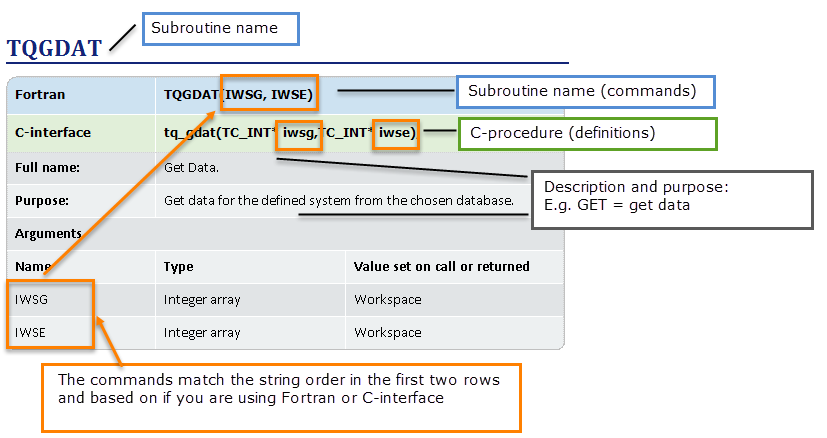TQSAME
| Fortran |
TQSAME(ICODE, IWSG, IWSE) |
|
|---|---|---|
| C-interface |
tq_same(TC_INT* icode,TC_INT* iwsg,TC_INT* iwse); |
|
|
Full name: |
Same System. |
|
|
Purpose: |
The application program can check if the thermochemical system has been changed, i.e., not just the conditions but the components or the phases. This is useful if several independent systems operate on the same equilibrium description. |
|
|
Comments: |
ICODE is an integer with positive value identifying current system. If ICODE is not the same next time TQSAME is called, the system has been changed.This routine may have to be used if the set of components or the set of phases has been changed. The value of ICODE is changed if there are changes of the components, phases, etc., but not with changes in the conditions, or values of thermodynamic model parameters etc. |
|
|
Arguments |
||
|
Name |
Type |
Value set on call or returned |
|
ICODE |
Integer |
Returns an internal code |
|
IWSG |
Integer array |
Workspace |
|
IWSE |
Integer array |
Workspace |
Note the following conventions to distinguish between the programming languages.
- Routines starting with TQXXX, for example, TQGDAT, are in the Fortran interface
- Routines starting with tq_xxxx, for example tq_gdat, are in the C-interface.
- In Fortran, all routines are subroutines and do not return any values except where explicitly declared as functions.
- All the C procedures are declared as void and do not return any values except where explicitly otherwise declared.
An example of how to read the subroutine definitions.
